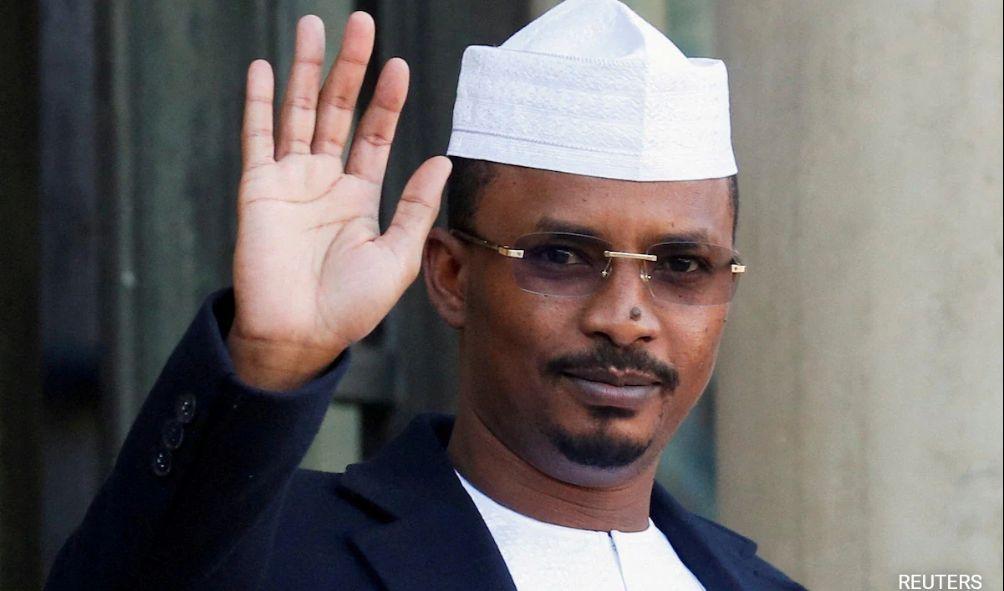Chad’s Constitutional Council Affirms Mahamat Idriss Deby’s Presidential Victory
N’DJAMENA, May 16 – Chad’s constitutional council affirmed Mahamat Idriss Deby’s victory in the May 6 presidential election on Thursday, dismissing challenges from two opposing candidates and solidifying a win that extends his family’s long-standing rule.
Deby, who assumed power following his father’s death at the hands of rebels in 2021 and subsequently declared himself interim leader, secured 61% of the vote, significantly ahead of runner-up Succes Masra, who garnered 18.54%, according to the council.
Masra, an opposition leader, accepted the council’s decision without indicating any intention to contest it. In a live address on Thursday evening, he stated, “With the decision of the constitutional council today, we have used all available legal means, and even if we do not accept this decision, there are no other legal means in our judicial architecture.”
Chad, a nation rich in oil, marks the first among several coup-affected states in the Sahel region of West and Central Africa to endeavor a return to constitutional governance through elections. Despite challenges, it has retained its status as a significant Western ally in combating insurgencies linked to al Qaeda and the Islamic State in the Sahel, unlike neighboring countries like Niger, Mali, and Burkina Faso, which have sought support from Russia after expelling Western forces.
However, both the United States and France, Chad’s former colonial power, have maintained a cautious stance, particularly since Chad’s air force chief requested the cessation of activities at a U.S. air base due to paperwork issues last month. In response, the U.S. announced a temporary withdrawal of at least some troops.
ALSO READ:
- “Two Groups, One Agenda”: Gachagua Accuses Raila of Secret Political Deals
- Exclusive: Ida Odinga’s 75th Birthday Party in Karen (Photos)
- FKF President Discloses Exact Amount Paid to Harambee Stars Players
- Gachagua’s Ally Senator John Methu Admits Ruto Might Win 2027 Elections
- Maraga Explains Why He Hasn’t Campaigned in Kisii Despite 2027 Bid
Expressing concern, U.S. State Department spokesperson Matthew Miller highlighted the exclusion of thousands of civil society and opposition party observers from the electoral process and noted deficiencies in the inclusivity of the transitional government in organizing the elections.
Despite acknowledging certain deficiencies, Miller welcomed significant milestones in Chad’s transition process, such as negotiations with insurgents, a National Dialogue, a constitutional referendum, and the presidential election.
Masra, who assumed the role of prime minister in a transitional government in January, lodged an appeal with the constitutional council to contest preliminary results announced the previous week. He had previously declared victory before the official announcement of preliminary results, alleging planned electoral fraud.
Another candidate, Albert Pahimini Padacke, who also contested the preliminary results, extended congratulations to Deby on his victory. However, the constitutional council deemed both complaints lacking in substantial evidence.
Jean-Bernard Padare, the president of the constitutional council, declared Deby as the president-elect, citing his attainment of an absolute majority of votes cast during the May 6 presidential election.
ALSO READ: “You’ve Been Talking to Opposition”: William Ruto Responds to Harvard Student Asking About Taxation
Deby’s victory ensures the continuation of his family’s enduring grip on power, which began with his father’s coup in the early 1990s. Following the announcement of preliminary results, at least 10 individuals, including children, lost their lives, and numerous others sustained injuries due to celebratory gunfire, as reported by Amnesty International and Chadian media outlets.
Yaya Dillo, an opposition figure expected to participate in the election, was fatally shot in N’Djamena on Feb. 28, the same day the election date was announced. His death, labeled as an assassination by the opposition, has raised suspicions, with forensic experts suggesting he was likely shot at close range.
Before the election, certain opposition parties and civil society organizations called for a boycott, alleging undue influence by Deby and his allies, who control key institutions of power, including the constitutional council, and could potentially sway the electoral process. Additionally, authorities prohibited the publication of polling station results.
Chad’s Constitutional Council Affirms Mahamat Idriss Deby’s Presidential Victory
